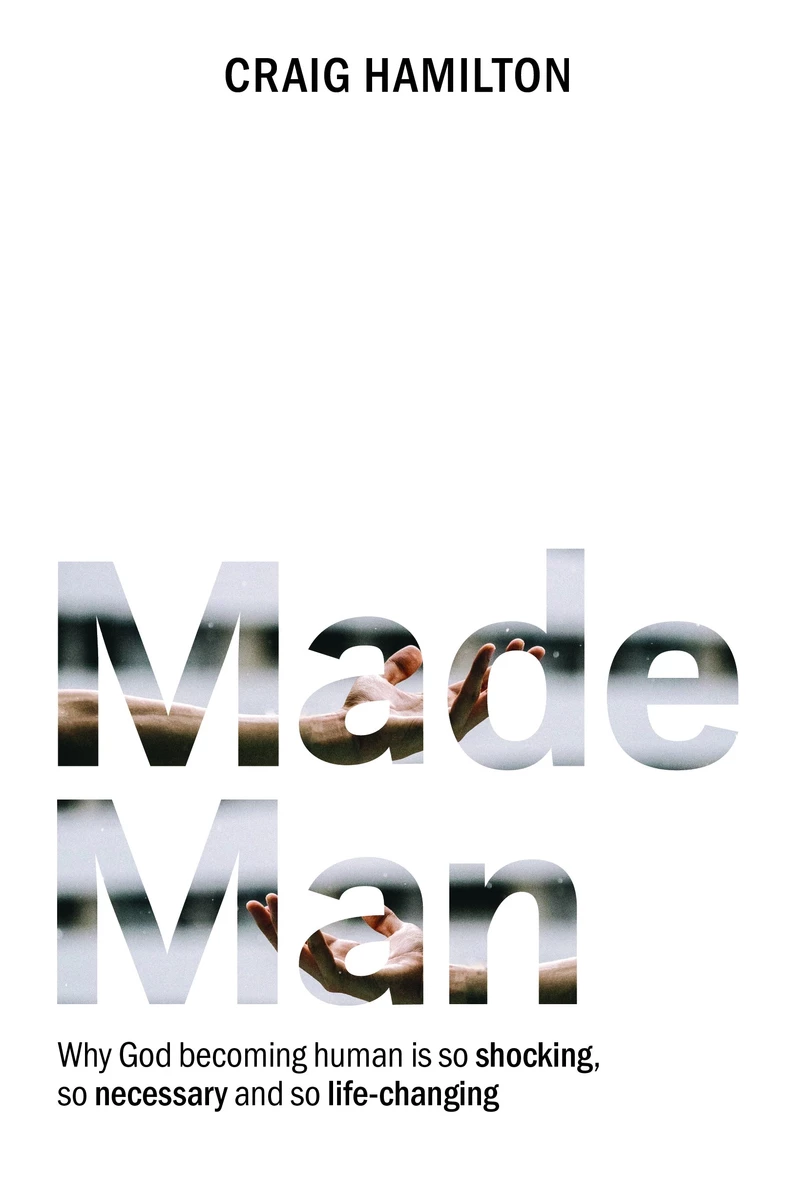I’ll be honest. I have rarely thought about the doctrine of the Incarnation, except perhaps last year at Christmastime, in preparation for and delivery of Christmas sermons. But apart from that, I can’t recall many recent pastoral conversations about the nature and necessity of God becoming one of us. And most of our worship songs these days don’t reference the dangers of Nestorianism or Apollinarianism, either (can you think of any? Me neither). I remember writing essays on the topic at theological college, but haven’t put much pen to paper since then. So I recently challenged myself to find something on the Incarnation to stretch my own theological thinking and reflection. Helpfully, Matthias Media recently published Craig Hamilton’s book Made Man and I am so pleased to have found something both pastorally encouraging, biblically rich and delivered in a warm, engaging (almost conversational) style, making it easy to read.

Made Man
Craig Hamilton
Made Man is about exactly that: how and why God the Son became the man Jesus of Nazareth. Hamilton covers the main biblical passages in both Old and New Testaments regarding how it is possible for God to become a human, and the different foreshadows and expectations in the Old Testament that are fulfilled or realised in the New. Hamilton is not reacting to any particular argument or debate about the Godhead, unlike some recent books engaging the doctrine of the Trinity with the roles of men and women, etc. Rather, Hamilton writes about the incarnation for its own sake, to remind us how essential and captivating it is and that we should talk about it more often, not less.
He covers many of the key biblical texts and gives a survey overview of the Christological debates, creeds, councils and heresies of the first four centuries of Christian history. At one level, this historical section of the book requires the most concentration to follow the various debates and arguments and their implications. But Hamilton maintains the readers interest with rhetorical questions and phrases littered throughout (e.g: finishing sentences with phrases like “Don’t you think?”).
The book is not so much an apologetics training manual, such as how to answer Jehovah’s Witnesses or Muslims and their view of the divinity of Christ—although the material in the book is beneficial for apologetics. The point of the book is to help Christians remember how significant the Incarnation is, so that we will preach, teach, pray and live in light of it more often—not just at Christmas time, but all the time.
The book is to help Christians remember how significant the Incarnation is, so that we will preach, teach, pray and live in light of it more often—not just at Christmas time, but all the time.
Hamilton’s book helps us remember that the work of Jesus on the cross is the work of the divine God-Man, God incarnate, and his sinless life should not be separated from his work of atonement (although they are distinct, they are not separate). Made Man encourages us to see the cross as the culmination of the Son’s redemptive work begun when he took on human flesh and dwelled among us, and that now He is exalted to the highest place, our substitute and representative, crowned with glory and honour forever.
O loving wisdom of our God!
When all was sin and shame
A second Adam to the fight/ and to the rescue came.











